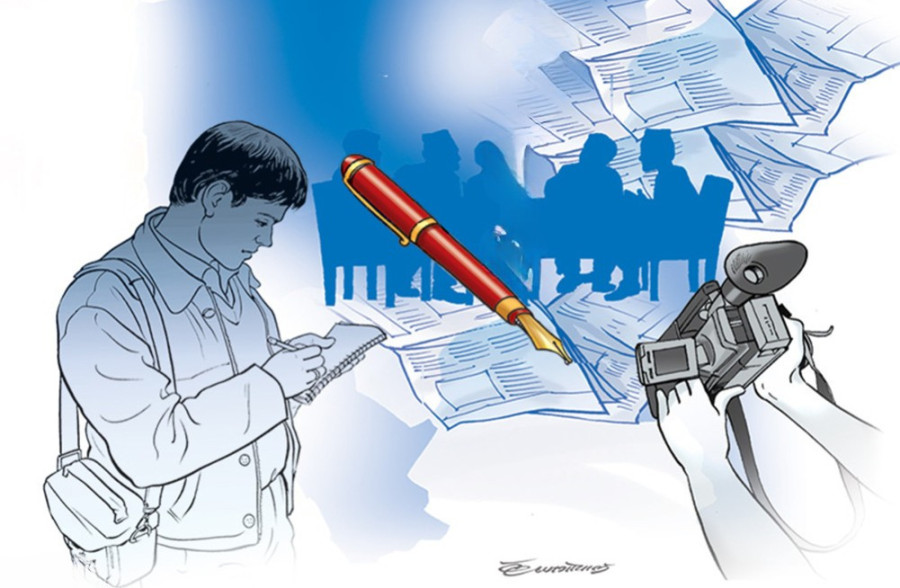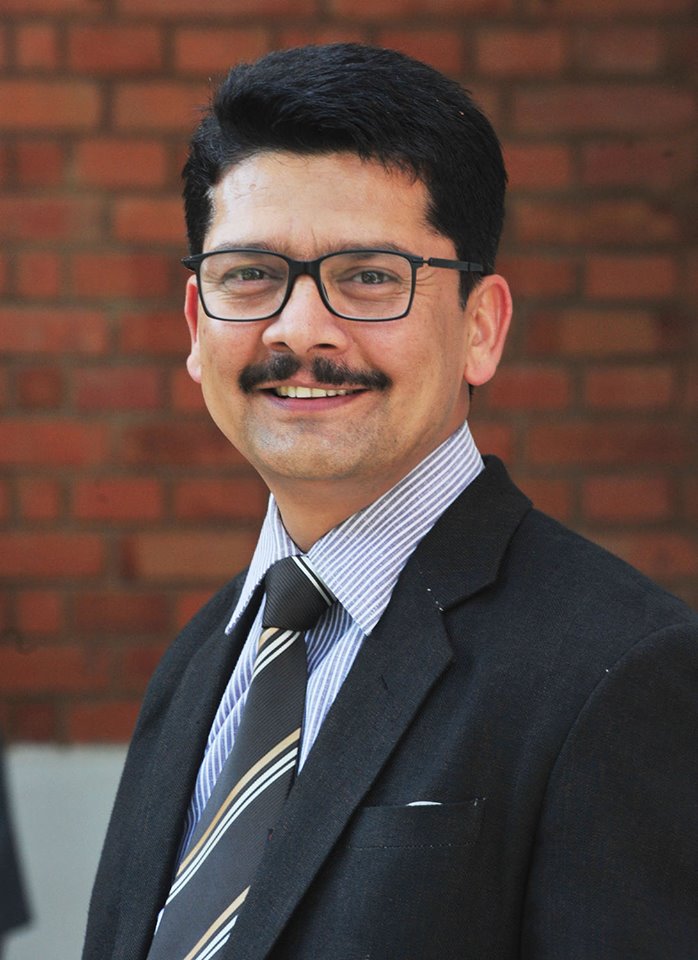Columns
Upholding Nepal’s free press promise
The impunity for crimes committed against journalists continues to put their entire profession at risk.
Thibaut Bruttin & Binod Dhungel
The preamble of the Constitution of Nepal solemnly enshrines “full freedom of the press,” recognising it as a cornerstone of democracy. Apart from that core principle, some articles in the Constitution are devoted to guaranteeing the freedom of the press. This means these rights are considered inviolable and are protected by the country’s legal framework, as per the spirit of the democratic transition in 2006.
These constitutional guarantees are solid evidence of the pact between the new regime and the people—a commitment that information will circulate freely, that truth will not be silenced under any excuse and that those who speak will be protected. Yet today, the state of press freedom in Nepal is increasingly fragile.
Reporters Without Borders (RSF), a Paris-based global press freedom organisation, published its World Press Freedom Index in early May, where Nepal is ranked 90th, 16 places down from last year. Worse, Nepal ranks 80th in the media economy, 88th in social indicators, and 120th in terms of the safety of journalists.
The RSF’s Nepal mission met with media stakeholders in mid-May. Their testimonies largely confirmed the RSF’s apprehension of the situation. Nepal stands at a crossroads. Will it live up to the ideals of its Constitution, or allow its press freedom to erode in silence? We would like to highlight some key topics that require urgent, concrete action to protect journalists, support independent media and promote journalism that serves the public interest in a real sense.
Safety first
Journalists in Nepal continue to face physical violence. Two media professionals have lost their lives within the past four and a half months: freelance journalist Suresh Bhul, in the farwestern district of Kailali, and Avenues TV cameraman Suresh Rajak in Kathmandu on March 28. What was the reason behind the killing? There were common questions with visiting media rights advocates. We met Suresh Rajak’s wife, who expressed, just as Suresh’s colleagues did, dissatisfaction over the lack of progress and transparency in the investigation process. However, we were deprived of the chance to ask this question to the executive authorities.
While the Nepali media fraternity was demanding a thorough investigation of the anti-press activities of March 28, 2025, Prime Minister KP Sharma Oli pledged in Parliament that no one found guilty would be spared. Likewise, in Bhul’s case, Home Minister Ramesh Lekhak had assured a delegation of journalists that the government would leave no stone unturned to conduct a necessary investigation into such a serious case of killing. A mob of locals had beaten journalist cum right-to-information activist Bhul seriously in broad daylight on November 9, 2024. He succumbed to injuries two days later in a local hospital. The global media fraternity is eagerly awaiting such commitments from the authorities to materialise.
The camera Suresh Rajak was using to capture the pro-King activists’ violence and a secondary mobile phone he was carrying with him are still missing. No trace of it was found on the site. Among 38 journalists murdered in Nepal since the decade-long conflict commenced in 1996, Rajak is the first journalist to be killed on the spot while performing his duty. This case highlights several issues regarding the safety of journalists.
Reaffirming that attacks on journalists are unacceptable in a democracy is not enough to ensure the physical safety of journalists. The impunity for crimes committed against journalists continues to put their entire profession at risk. The investigation may go on longer and yield nothing in the end.
Support the media economy
The weakened economic condition of the news industry has two consequences, highly evidenced in Nepal: Firstly, the outlets are tempted to lower the quality of their content and favour sensationalist, polarising, or clickbait news pieces; secondly, the journalists are forced to diversify their resources of income by engaging simultaneously in media and and party politics. Both the circumstances are against what the general public expects from the media: Transparent journalism which serves the truth and establishes the facts. Therefore, we urge media owners to fully implement the minimum wage regulation and to ensure the timely payment of salaries to their employees.
Furthermore, we call upon the Parliament to amend the Social Media Bill to keep news media out of its scope. News media that obtain a licence or follow international standards, such as the one developed by the Journalism Trust Initiative. At the same time, we also urge Nepali lawmakers, including House Speaker Devraj Ghimire—who pledged unwavering support for press freedom during the RSF mission meeting—to uphold these principles while drafting or amending the necessary legislation.
Independent journalism cannot survive without a viable media economy. Across Nepal, dozens of local outlets are facing existential crises due to a lack of advertising revenue. This financial fragility makes media outlets more vulnerable to influence, self-censorship, or capture by groups with vested interests.
The government must adopt transparent, fair mechanisms for the allocation of public advertising and subsidies to support independent media without discrimination. However, the mass media, which is a loud advocate of transparency, must also be clear in all aspects so that public credibility is easily earned.
Serves the public good
In an era of disinformation, media polarisation and declining public trust, Nepal urgently needs journalism that informs, empowers and holds power accountable. This requires a long-term vision: consistent support for training programmes, strong protection for editorial independence and promotion of public service journalism, especially outside major cities.
The state must also avoid favouring partisan media outlets, and instead help sustain a pluralistic media environment that reflects the diversity of Nepali society.
The future of Nepal’s democracy depends in part on the strength and independence of its public service broadcasters. Radio Nepal and Nepal Television must be reformed to serve the public—not political parties. This means transforming them into independent institutions with clear editorial guidelines, assurance of visible public access, professional leadership selected transparently and a mandate to represent the diversity of Nepali voices.
Public funding should be guaranteed but free from government interference or influence. A revitalised PSB can play a critical role in countering disinformation, providing credible information to citizens and strengthening national unity—provided it is shielded from political control and managed in the public interest.
We call upon PM Oli to champion policies that foster ethical, investigative and inclusive journalism—one that gives a voice to all citizens, including marginalised communities. The government must recognise journalism not as a threat, but as a pillar of the democratic system it claims to uphold.
At the heart of democracy lies an undeniable truth: there can be no true freedom without press freedom. The RSF championed this principle in Nepal during the decade-long internal armed conflict, when the nation’s media was caught in the crossfire of conflicting powers. Reporters Without Borders’ slogan, “No Freedom without Press Freedom,” resonated deeply then and remains urgent today.
As Nepal continues its democratic journey, we call on the government to protect journalists, uphold freedom of expression and honour the constitutional guarantees that safeguard these rights. A society cannot thrive when its press is silenced.




 11.12°C Kathmandu
11.12°C Kathmandu
















